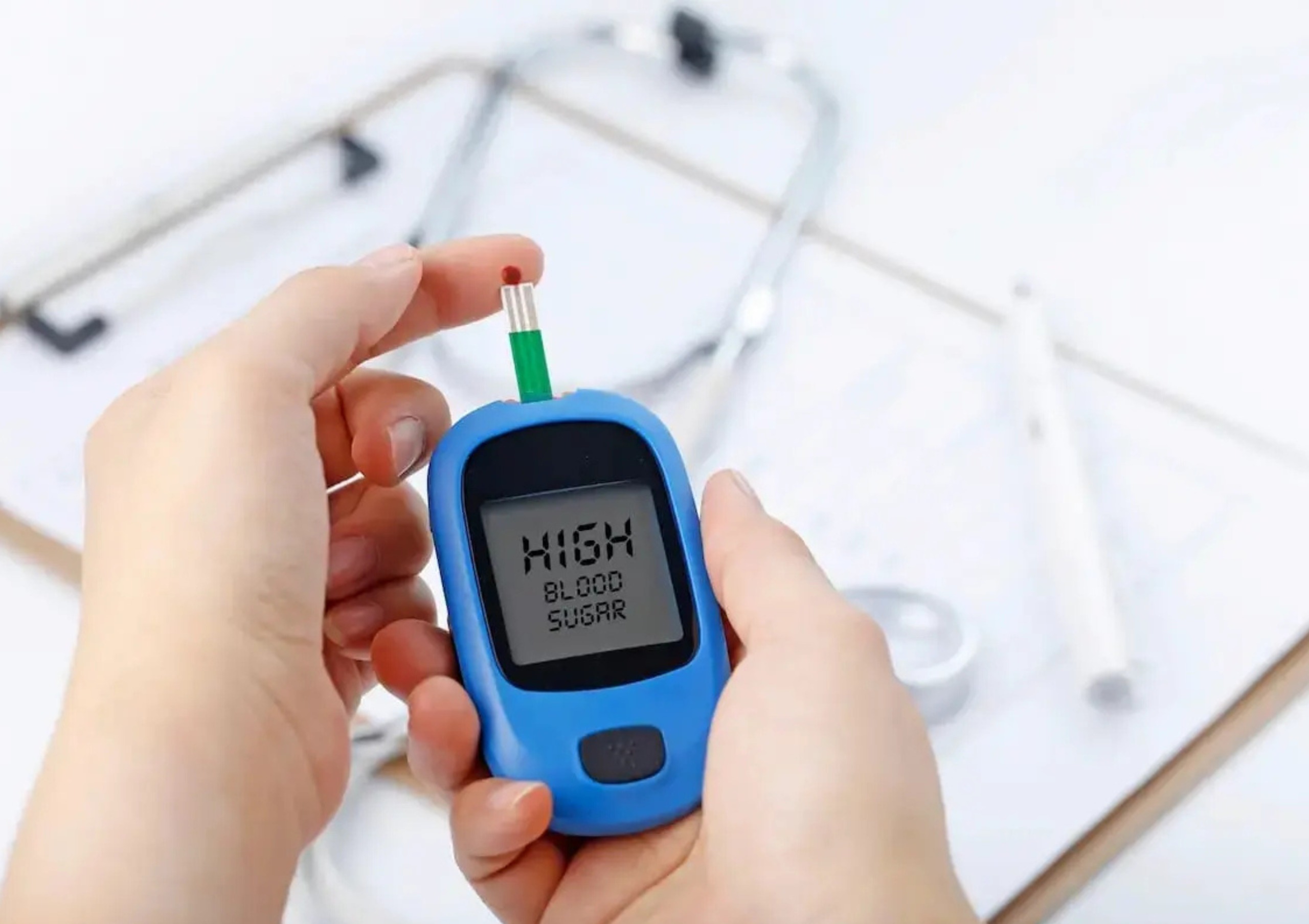
Prediabetes is a health condition in which the level of sugar in the blood is higher than normal but has not yet reached the stage of type‑2 diabetes. It usually occurs due to insulin resistance, meaning the body’s cells do not respond properly to insulin. The risk of prediabetes increases in people over the age of 45, those who are overweight, especially with fat around the waist, or who have a family history of diabetes. Lack of exercise, smoking, irregular lifestyle, unhealthy diet, mental stress, and insufficient sleep also raise the risk.
In most cases, prediabetes has no clear symptoms, which is why it is often called a silent danger. However, some people may experience excessive thirst, frequent urination, sudden fatigue, blurred vision, slow healing of wounds, or dark patches around the neck. Prediabetes is diagnosed through blood tests such as fasting plasma glucose, A1C, or an oral glucose tolerance test. If A1C falls between 5.7 and 6.4 percent, or fasting blood sugar ranges from 100 to 125 mg/dL, it is considered prediabetes.
If timely steps are not taken, prediabetes can easily progress to type‑2 diabetes. Lifestyle changes are the most effective way to control it. Regular exercise like brisk walking, cycling, or swimming for at least 30 minutes a day helps regulate blood sugar levels. Dietary changes are equally important, including avoiding sugar, excess oil, fried foods, and processed items, while eating vegetables, fruits, whole grains, and fiber‑rich foods. Losing just 5‑7% of body weight can often help blood sugar return to normal levels.
If lifestyle changes alone are not enough, doctors may prescribe medicines like metformin, but lifestyle adjustments remain the most effective solution. Regular blood sugar checks every few months, along with monitoring blood pressure and cholesterol, are highly recommended.
Prediabetes is essentially an early warning sign. It indicates that the body is asking for care and attention. By becoming aware in time, this condition can be reversed entirely. If you are at risk or have any suspicion, get your blood sugar tested today and start living a healthier lifestyle.